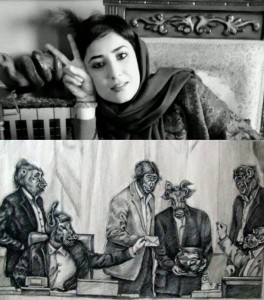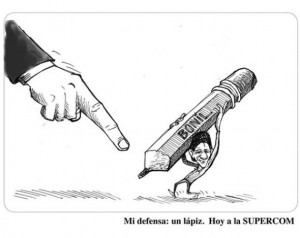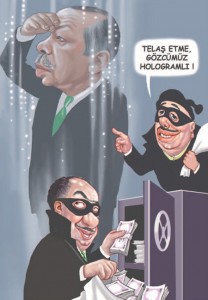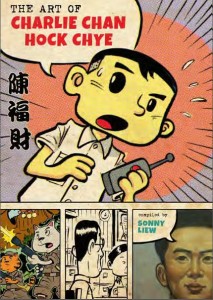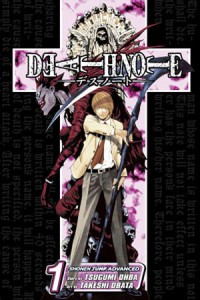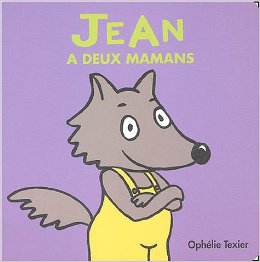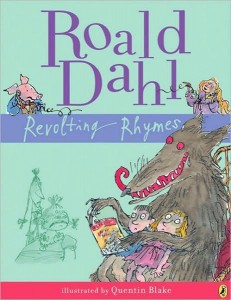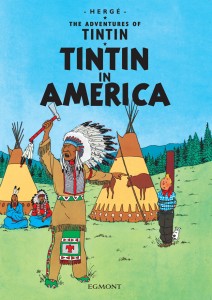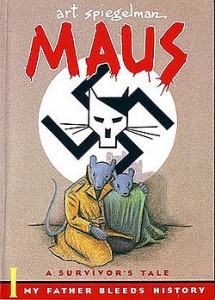In the United States, we’re celebrating Banned Books Week and our First Amendment right to freedom of speech, but artists around the world continue to be censored and banned and sometimes even imprisoned or killed. From political cartoonists to comic book creators and YA authors, challenges abound abroad.
As we celebrate the right to read in the US, let’s remember some of the creators and books that have faced censorship, governmental prosecution, and more in countries around the world.
1. Atena Farghadani in Iran
In May, Iranian artist and women’s rights activist Atena Farghadani was charged with “insulting members of parliament through paintings” for a caricature she drew lampooning debate on a bill that would outlaw some forms of contraception. A verdict was delivered in June, sentencing Farghadani to 12 years and nine months in prison — a sentence she is currently serving.
In light of this decision, fellow cartoonists in Iran as well as around the world banded together in solidarity for the cartoonist. From a #Draw4Atena campaign to presenting her with the CRNI Courage in Cartooning award, the global community continues to stand in support for the cartoonist.
Other coverage on cbldf.org:
- Iranian Cartoonist Faces Prison, Floggings for Mocking Birth Control Bill
- Cartoonist Sentenced to 12 Years in Prison for Mocking Birth Control Bill
- Farghadani to Receive CRNI Courage in Cartooning Award
- Cartoonists #Draw4Atena
- Atena Farghadani’s Lawyer Also Under Arrest in Iran
- Iranian-born Actress Ratchets Up International Pressure to Free Atena Farghadani
- Fellow Cartoonists Honor Atena Farghadani at CRNI Courage Award Ceremony
- Vandalized Mural of Cartoonist Atena Farghadani Ignites Debate
2. Bonil (Xavier Bonilla) in Ecuador
Political cartoonist Xavier Bonilla, known as Bonil, was charged with “socioeconomic discrimination” this past February in his home country of Ecuador for a cartoon targeting Agustín “Tin” Delgado, a former professional soccer player who now sits on Ecuador’s legislative assembly.
Bonilla is best known for his outspoken and blunt political cartoons, which address several social and political issues within Ecuador. From his “insulting” cartoon of Ecuadorian President Rafael Correa in 2014 (for which he narrowly avoided prosecution) to a controversial cartoon that depicted the raid of oil trade unionist and legislative adviser Fernando Villavicencio (a cartoon he was forced to revise within 72 hours of its publication), Bonil is no stranger to governmental censorship, and he has been targeted by numerous social and political groups, including an alleged threat from ISIS. Regardless, he has also become one of the most outspoken critics of the increased free speech violations in his home country.
Other coverage on cbldf.org:
- Ecuadorian Cartoonist Faces Charges for “Socioeconomic Discrimination”
- Ecuadorian Cartoonist Bonil Fined by His Government and Threatened by ISIS
- Bonil: “The Role of a Cartoonist Is to Be a Dissident”
- Cartoonist Bonil Keeps Up Fight Against Government Censorship
- Cartoonists Around the World Stand In Support of Charlie Hebdo
3. Musa Kart in Turkey
In February of this year, Turkish cartoonist Musa Kart criticized prime minister Recep Tayyip Erdoğan’s apparent role in a graft scandal and simultaneously mocked a speech that he gave via hologram at a party meeting. In response, Erdoğan filed a criminal complaint against Kart, which could have resulted in a prison sentence of nearly 10 years but was decided with an acquittal in November.
This was not the first time Kart’s work ran afoul of Erdoğan’s sensibilities and led to him being a target of the Turkish government. Despite the negative attention and threats of prosecution, the creator continues to produce work and defend all Turkish citizens’ rights to free speech.
Other coverage on cbldf.org:
- Turkish Cartoonist Acquitted of Insulting President
- Turkish Cartoonists Stand Behind Their Right to Free Speech Despite Threats
4. Sonny Liew in Singapore
Due to unease over potential controversial content, the National Arts Council in Singapore, an organization with close governmental ties, withdrew its grant to aid in the publication on Sonny Liew’s The Art of Charlie Chan Hock Chye in June.
Faced with similar financial dilemmas in the past, publishers in Singapore have come to expect these types of censorship attempts. The removal of the funding, though, didn’t stop the publisher or Sonny Liew from publishing the book. In fact, shortly after release in Singapore, the graphic novel instantly sold out as a result of the widespread outcry over the grant withdrawal.
Other coverage on cbldf.org:
- EXCLUSIVE: CBLDF Talks with Sonny Liew About The Art of Charlie Chan Hock Chye and Censorship
- Comic Artist Tackles Censorship in Singapore
- Censorship by Financial Sabotage: Cartoonist Sonny Liew Loses Singapore Arts Grant
- Financial Setback Doesn’t Stop Sonny Liew Graphic Novel from Selling Out
5. Zunar in Malaysia
Nearly all of Zunar’s books have been officially banned in Malaysia at some point, and the cartoonist continues to be the target of the Malaysian authorities. From awaiting trial for nine counts of sedition for cartoons and statements that he sahared on Twitter in February — charges that could result in up to 43 years in prison — to intimidation tactics being used by the government to dissuade readers from supporting the cartoonist, Zunar has had to overcome several challenges. Despite the court cases, censorship attempts, and threats of jail sentences, Zunar continues to be one of Malaysia’s and the world’s strongest advocates for freedom expression.
Other coverage on cbldf.org:
- Malaysian Appeals Court Lifts Ban on Two Zunar Books
- Zunar Assistants Arrested for Selling Cartoon Books
- Malaysian Human Rights Group Supports Zunar
- Malaysian Government Seeks Details on Zunar Customers
- International Community Rallies to Support Zunar
- Zunar Calls for World Cartoonists Day on Anniversary of Charlie Hebdo Attack
- Malaysian Police Again Raid Zunar’s Office, Seize Books
- Zunar Arrested for Twitter Criticism of Malaysian Government
- Zunar Charged with Nine Counts of Sedition
- Zunar Receives Grant Support from Human Rights Watch
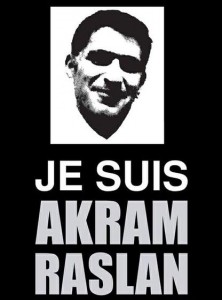
Tribute by Fadi Abou Hassan
6. Akram Raslan in Syria
Three years since Syrian editorial cartoonist Akram Raslan was arrested by the Assad regime for “offending the state’s prestige” with his work, it is now all but certain that he died in government custody in 2013. Based on testimony from a fellow prisoner, Damascus news service Souriatna reported recently that Raslan was transferred to a prison hospital where he later died, possibly as a result of torture.
Reporters Without Borders’ Alexandra El Khazen deplored Raslan’s reported death in a statement:
Akram Raslan’s death as a result of torture by the regime’s henchmen is a reminder that Syria has been a hell for journalists for more than four years. Professional and citizen-journalists alike are caught between the various parties to the conflict and are terrorized by both radical Islamist groups and Bashar al-Assad’s ruthless regime. We reiterate our appeal to the UN Security Council to end the impunity by referring the situation in Syria to the International Criminal Court.
Other coverage on cbldf.org:
7. Death Note, Attack on Titan and 36 Other Manga and Anime in China
In order to protect the welfare of their children and curb a potential rise in juvenile delinquency, the Chinese Ministry of Culture in June issued a list of 38 Japanese manga and anime that will no longer be allowed into the country. From Attack on Titan to Death Note, the Chinese ministry issued warnings to popular Chinese websites that stream the banned content, ordering the sites to remove the materials or face fines. Read the full post
Other coverage on cbldf.org:
- Despite Ban, Manga and Anime Remain Hot Topics on Chinese Social Media
- Anime News Network Highlights Banned Manga
8. Into the River in New Zealand
After a series of back-and-forth censor board reviews, the award-winning young adult novel Into the River by New Zealand writer Ted Dawe is now completely banned in the author’s native country, pending yet another review that will likely come later this month. Currently any individual, library, or retailer that distributes the book could face a fine of at least $1,800.
There is nothing particularly lascivious about Into the River, the story of an indigenous Maori teen trying to adapt to life in an elite boarding school. The book contains two brief sex scenes and some profanity, but many other books that are still freely available in New Zealand go much further. So how did it end up banned? Read the full post
9. Jean a Deux Mamans & 49 Other Children’s Books in Italy
Luigi Brugnaro took one of his first stands this past July after being elected mayor of Venice, Italy, by banning several children’s books from kindergarten classrooms.
The subject matter of the 50 banned books ranges from topical issues such as divorce, gay marriage, and alternative lifestyles and family situations to more commonplace and simple subjects like embracing difference, developing friendships, and fighting stereotypes and discrimination. Brugnaro calls all of the books being targeted “gender books,” books that he believes violate the “traditional family” model and therefore should not be taught in schools. Read the full post
10. Revolting Rhymes in Australia
In September 2014, Australian supermarket chain Aldi removed Roald Dahl’s Revolting Rhymes from its shelves after receiving complaints for the usage of the word “slut.”
As for the recent criticism for Dahl’s use of the word slut, many are arguing that the writer wasn’t using it in the modern, derogatory definition — a promiscuous woman — but rather someone who is dirty and untidy. Regardless, censorship cannot be a means to an end. Read the full post
11. Tintin in America in Canada
The 1932 Belgian comic Tintin in America ran into trouble in Winnipeg, Canada, in March, when it was temporarily pulled from the sales floor of a Chapters bookstore and then when it was removed from the city’s library system, perhaps never to return. Some First Nations activists say the book should not be sold because it contains offensive stereotypes and misinformation about Native Americans. Read the full post
Other coverage on cbldf.org:
12. Maus in Russia
Although no formal complaints were issued, several major bookstore chains in Russia began pulling the Pulitzer Prize winning graphic novel Maus off of their store shelves and internet sites in early May. The reason: The cover depicts a Nazi swastika.
According to a recent law passed last year, all Nazi propaganda is forbidden from being displayed in retail shops, including on the cover of a book whose overall message is completely anti-Nazi. Read the full post
___
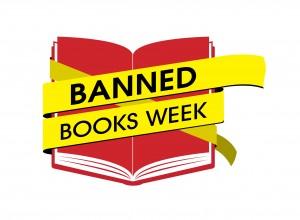 As you’re planning your events or developing your library and classroom curricula, be sure to check out these other valuable CBLDF resources:
As you’re planning your events or developing your library and classroom curricula, be sure to check out these other valuable CBLDF resources:
- CBLDF Banned Books Week Handbook
- CBLDF Posters and Shelf Talkers
- CBLDF Comics Connector
- CBLDF Banned Books Week Gear Bundle
- 12 Challenged & Banned YA Graphic Novels for Banned Books Week 2015
- 28 Challenged and Banned Comics to Read During Banned Books Week 2015!
- 12 Challenged or Banned Summer Reading Books for Banned Books Week 2015!
- Raising A Reader: How Comics & Graphic Novels Can Help Your Kids Love to Read!
- Using Graphic Novels in Education
- Adding Graphic Novels to Your Library or Classroom Collection
- CBLDF Discussion Guides
- CBLDF Banned Comics Case Studies
- Comic Book Club Handbook
- CBLDF Presents: Manga
- Working With Libraries: A Handbook For Comics Creators
Banned Books Week is sponsored by the American Booksellers Association, American Booksellers for Free Expression, American Library Association, American Society of Journalists and Authors, Association of American Publishers, Comic Book Legal Defense Fund, Freedom to Read Foundation, National Association of College Stores, National Coalition Against Censorship, National Council of Teachers of English, PEN American Center, People for the American Way Foundation, and Project Censored.
Help support CBLDF’s important First Amendment work in 2015 by visiting the Rewards Zone, making a donation, or becoming a member of CBLDF!
